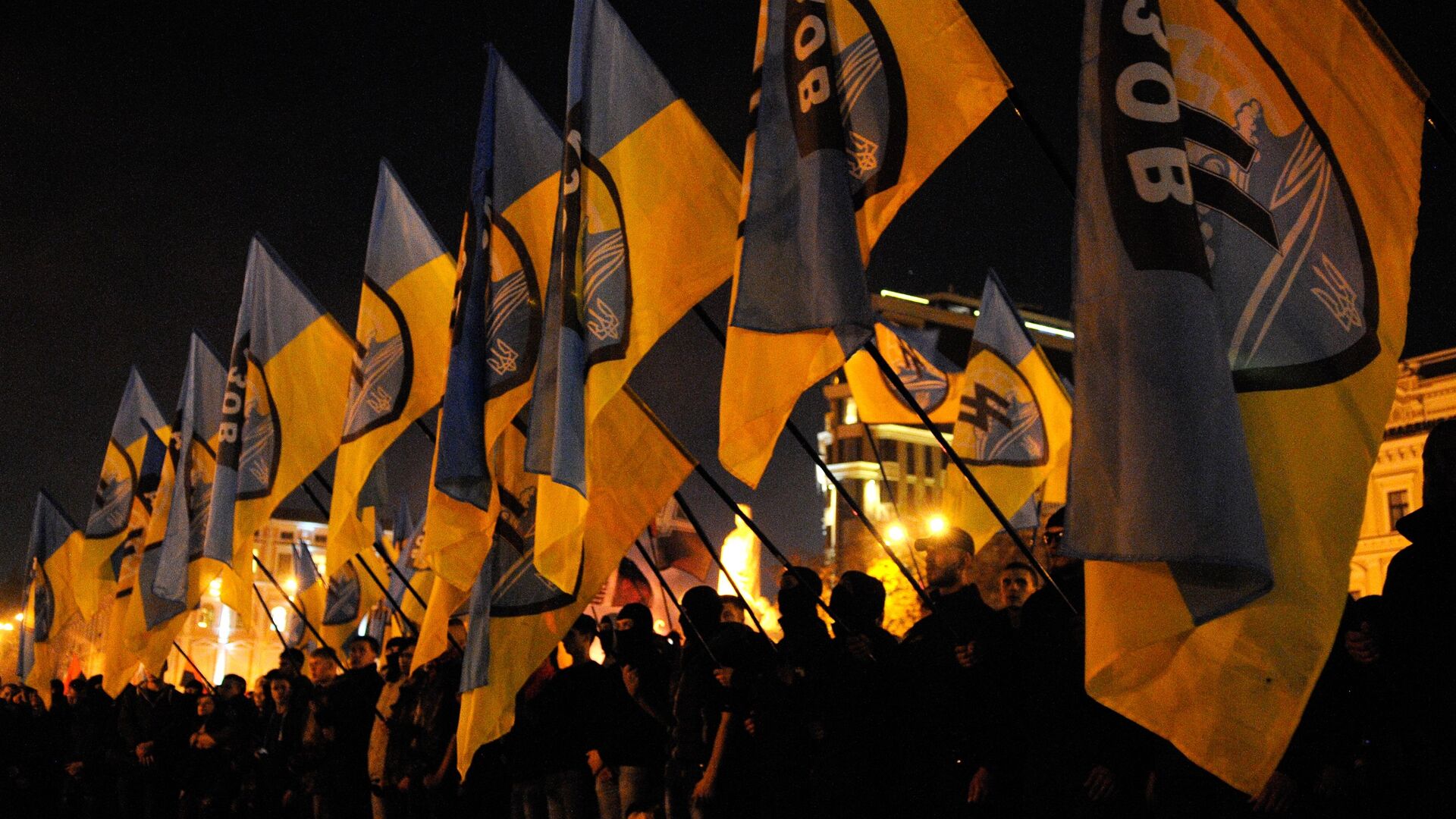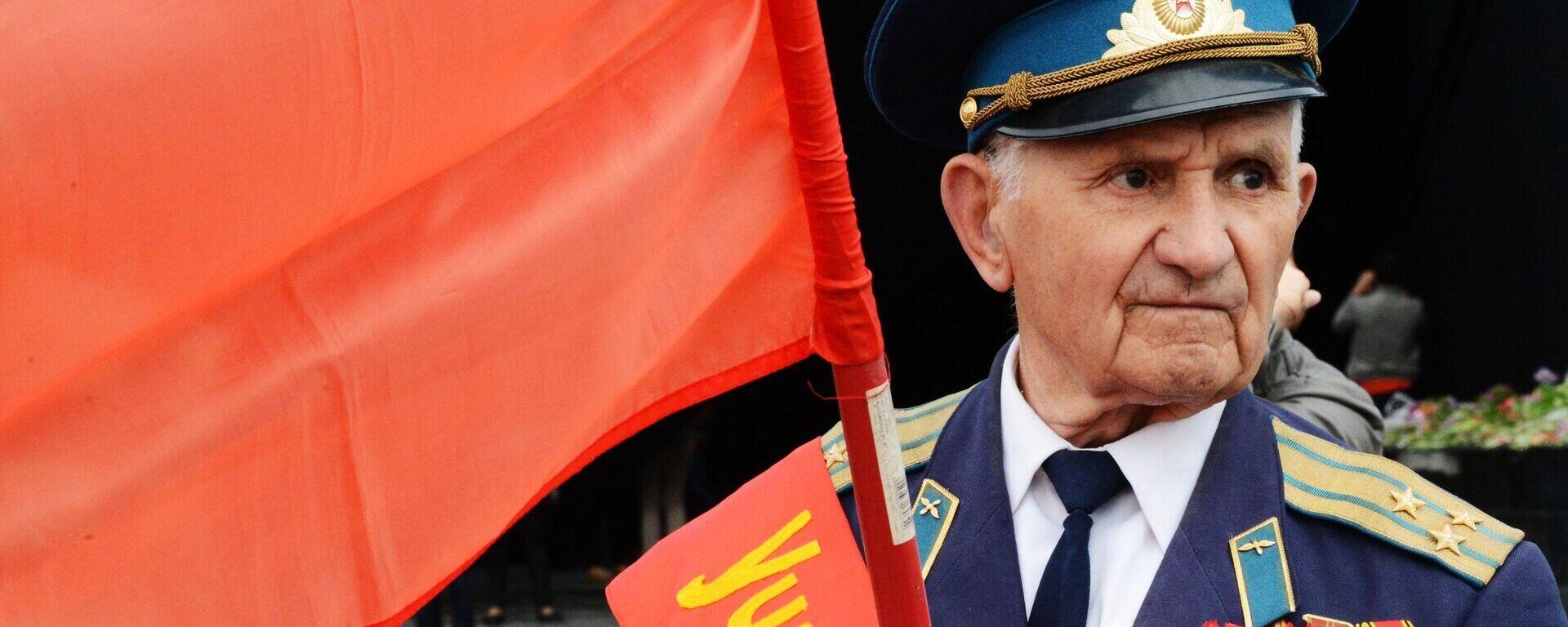https://sputnikglobe.com/20230107/how-literal-nazis-holding-kiev-hostage-ruined-relations-with-budapest-a-view-from-hungary-1106111360.html
How Literal Nazis Holding Kiev Hostage Ruined Relations With Budapest: A View From Hungary
How Literal Nazis Holding Kiev Hostage Ruined Relations With Budapest: A View From Hungary
Sputnik International
Budapest and Kiev have suffered poor relations for nearly a decade, owing discriminatory laws against the estimated 150,000-strong community of ethnic Hungarians living in the southwestern Ukrainian region of Zakarpattia.
2023-01-07T13:11+0000
2023-01-07T13:11+0000
2023-01-07T13:47+0000
world
hungary
ukraine
poland
russia
soviet union
neo-nazism
neo-nazis
collaborators
nazi collaborators
https://cdn1.img.sputnikglobe.com/img/102392/45/1023924547_0:153:3000:1841_1920x0_80_0_0_e4e333e12f1d182c0586de0d7fb7cbc4.jpg
The source of the “stormy relationship” between Hungary and successive Ukrainian governments since the 2014 Euromaidan coup is no mystery, and stems from the criminally underreported-on problem of ultranationalists holding Ukrainian politicians and politics hostage, a Hungarian columnist has observed.Recalling that Hungary was only the third country in the world after Poland and Canada to recognize Ukraine’s independence after the collapse of the USSR in December 1991, observer Peter G. Feher explained that Budapest, for its part, did everything it could to get relations with its new neighbor off on the right foot.Hungary was the very first nation to establish formal diplomatic relations with Kiev, with the two countries speedily setting up embassies in one another’s capitals, and signing a treaty on good neighborliness and cooperation.Dark Clouds on the HorizonThe columnist sees the origins of the downturn in ties in the Orange Revolution – 2004-2005 Western-backed protests in Ukraine following tense elections which culminated in a do-over which ousted President-elect Viktor Yanukovych and replaced him with Viktor Yushchenko, who began pulling the heavily divided nation toward European integration and NATO membership.The 2004 Orange Revolution, “aimed at democratizing Ukraine and removing the Soviet nomenklatura, also brought about an unexpected return” of political forces “that are still little known,” Feher wrote. “Taking advantage of the revolutionary atmosphere, old Ukrainian fascists and their descendants, who had supported the Nazi German armies during World War II, returned home, mainly from Canada and Australia. At the time, no one paid much attention to it, but things began to change, albeit slowly, in the wrong direction,” according to the observer.Tens of thousands of veterans of the so-called Ukrainian Insurgent Army (Ukrainian and Russian acronym ‘UPA’) - the fascist paramilitary force founded by the Organization of Ukrainian Nationalists in 1942, and other collaborators fled west as the Red Army advanced through Ukraine and Eastern Europe between 1943 and 1945. After the war, many were granted citizenship in Western European countries, the United States and Canada. While they are lauded by the Ukrainian government today as “heroes” who fought for Ukrainian independence, the UPA’s estimated 100,000 fighters were historically dwarfed by the more than six million Ukrainians who served in the ranks of the Red Army during the Second World War, and who, until the collapse of the USSR and the 2004 and 2014 Maidan events, were considered the true heroes of Ukraine.Feher recalled that even after Yushchenko was defeated and Yanukovych returned to become president in 2010, Hungary continued to support Ukraine’s drift toward the European Union – including visa-free travel, a free trade deal and an association agreement with the EU.“But the times changed, and Ukraine’s domestic politics became more and more hectic. President Yanukovych began to pull toward Moscow, causing strong tensions in Kiev. With quiet American help, the aforementioned Ukrainian Nazis emerged, mingling with neo-Nazis. Yanukovych was removed from power in a coup d’état,” the observer noted, emphasizing that these “far right” forces have been “holding the government in Kiev hostage ever since.”“Since the madness of 2014, neo-Nazis have threatened anyone who does not share their views, and they have managed to subjugate all Ukrainian politics. Stepan Bandera, the founder of the Ukrainian Insurgent Army, who willingly served the German occupiers, and whose monuments are now erected in Ukraine’s public squares, is responsible for the massacre of hundreds of thousands of people,” Feher stressed.The lionization of Bandera by the post-coup authorities in Kiev has been a major source of tensions between Ukraine and another of its neighbors – Poland. Upwards of 200,000 Polish civilians were killed at the hands of UPA nationalists in western Ukraine during WWII, with tens of thousands of Ukrainian anti-fascist partisans and civilians, and Red Army servicemen also killed fighting the insurgents, who continued their campaign well into the post-war period.Unfortunately, Feher noted, Hungary “did not have to wait long” for the effects of the Banderization of Ukraine to paralyze Kiev with ultra-nationalism, with a 2017 education law, which called for the phasing out of minority languages from public education, “clearly intended to ‘push’ the Hungarian language out of Zakarpattia,” home to more than 150,000 ethnic Hungarians.The 2017 law sparked protests, not only from Hungarian and Russian-speakers, but minority communities of Bulgarians, Romanians, and other Eastern European peoples who dot the vast country. Russian authorities called the education law an “act of ethnocide.”“When Ukrainian President [Volodymyr] Zelensky came to power, he promised to change the situation, but new legislation put Hungarians at an even greater disadvantage,” Feher lamented, referring to a 2019 law "On Ensuring the Functioning of the Ukrainian Language as the State Language," which further restricted the use of minority languages and likened the idea of multilingualism to “actions aimed at the forcible change or overthrow of the constitutional order.”“In response to anti-Hungarian sentiment, Foreign Minister Peter Szijjarto said in 2017: Ukraine stabbed Hungary in the back,” Feher concluded.
https://sputnikglobe.com/20221223/eus-23-billion-for-hungary-held-back-after-brussels-nods-18-billion-ukraine-package--1105732413.html
https://sputnikglobe.com/20220508/old-men-for-beating-how-world-war-ii-veterans-were-abused-for-years-in-ukraine-1095508241.html
https://sputnikglobe.com/20230102/polish-prime-minister-expressed-indignation-over-celebration-of-banderas-birthday-1105998306.html
https://sputnikglobe.com/20221221/hungarian-parliament-speaker-wests-push-to-turn-ukraine-into-anti-russian-bridgehead-is-mistake-1105673691.html
hungary
ukraine
poland
russia
soviet union
Sputnik International
feedback@sputniknews.com
+74956456601
MIA „Rosiya Segodnya“
2023
News
en_EN
Sputnik International
feedback@sputniknews.com
+74956456601
MIA „Rosiya Segodnya“
Sputnik International
feedback@sputniknews.com
+74956456601
MIA „Rosiya Segodnya“
hungary, ukraine, relations, ties, bad blood, stormy relations, history, ukrainian insurgent army, world war ii, politics, orange revolution
hungary, ukraine, relations, ties, bad blood, stormy relations, history, ukrainian insurgent army, world war ii, politics, orange revolution
How Literal Nazis Holding Kiev Hostage Ruined Relations With Budapest: A View From Hungary
13:11 GMT 07.01.2023 (Updated: 13:47 GMT 07.01.2023) Budapest and Kiev have suffered exceptionally poor relations for nearly a decade, owing largely to discriminatory laws against the estimated 150,000-strong community of ethnic Hungarians living in the southwestern Ukrainian region of Zakarpattia.
The source of the “stormy relationship” between Hungary and successive Ukrainian governments since the 2014 Euromaidan coup is no mystery, and stems from the criminally underreported-on problem of ultranationalists holding Ukrainian politicians and politics hostage, a Hungarian columnist has observed.
Recalling that Hungary was only the third country in the world after Poland and Canada to recognize Ukraine’s independence after the collapse of the USSR in December 1991, observer Peter G. Feher
explained that Budapest, for its part, did everything it could to get relations with its new neighbor off on the right foot.
Hungary was the very first nation to establish formal diplomatic relations with Kiev, with the two countries speedily setting up embassies in one another’s capitals, and signing a treaty on good neighborliness and cooperation.
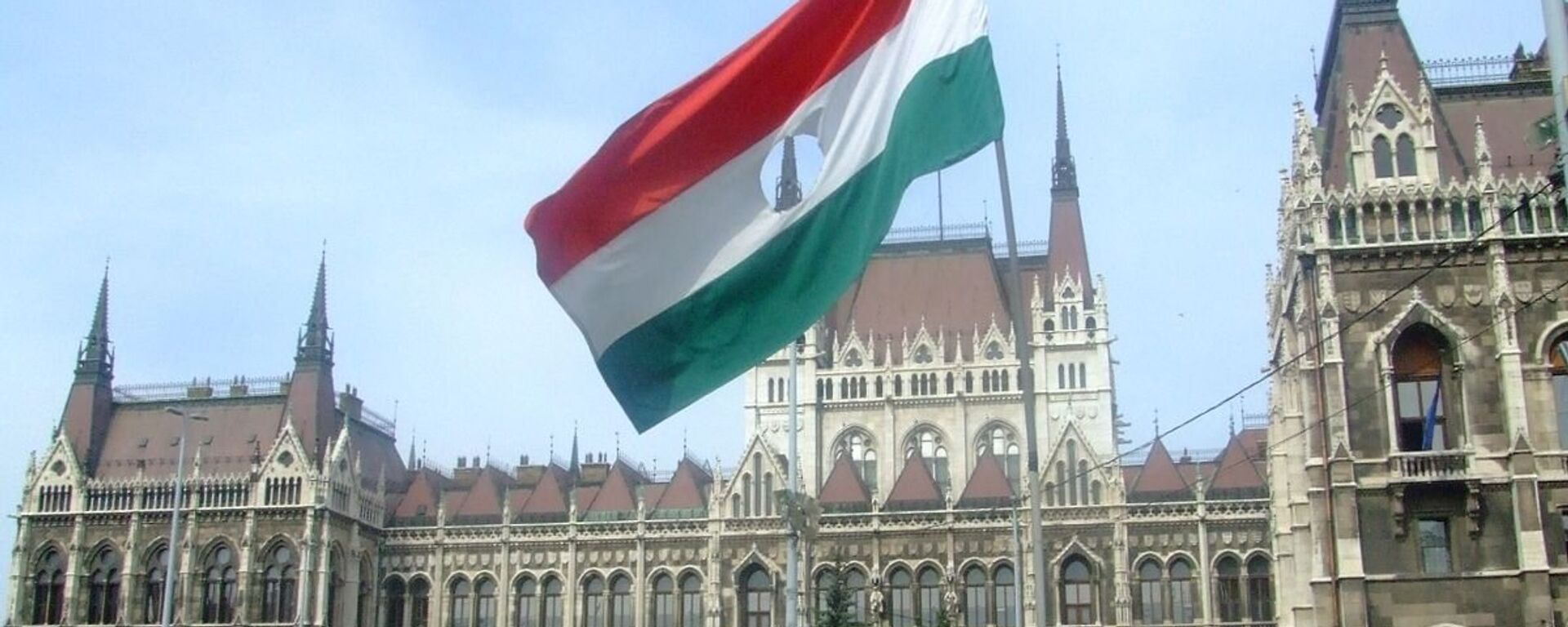
23 December 2022, 14:53 GMT
Dark Clouds on the Horizon
The columnist sees the origins of the downturn in ties in the Orange Revolution –
2004-2005 Western-backed protests in Ukraine following tense elections which culminated in a do-over which ousted President-elect Viktor Yanukovych and replaced him with Viktor Yushchenko, who began pulling the heavily divided nation toward European integration and NATO membership.
The 2004 Orange Revolution, “aimed at democratizing Ukraine and removing the Soviet nomenklatura, also brought about an unexpected return” of political forces “that are still little known,” Feher wrote. “Taking advantage of the revolutionary atmosphere, old Ukrainian fascists and their descendants, who had supported the Nazi German armies during World War II, returned home, mainly from Canada and Australia. At the time, no one paid much attention to it, but things began to change, albeit slowly, in the wrong direction,” according to the observer.
Tens of thousands of veterans of the so-called Ukrainian Insurgent Army (Ukrainian and Russian acronym ‘UPA’) - the fascist paramilitary force founded by the Organization of Ukrainian Nationalists in 1942, and other collaborators fled west as the Red Army advanced through Ukraine and Eastern Europe between 1943 and 1945. After the war, many were granted citizenship in Western European countries, the United States and Canada. While they are lauded by the Ukrainian government today as “heroes” who fought for Ukrainian independence, the UPA’s estimated 100,000 fighters were historically dwarfed by the more than six million Ukrainians who served in the ranks of the Red Army during the Second World War, and who, until the collapse of the USSR and the 2004 and 2014 Maidan events, were considered the true heroes of Ukraine.
Feher recalled that even after Yushchenko was defeated and Yanukovych returned to become president in 2010, Hungary continued to support Ukraine’s drift toward the European Union – including visa-free travel, a free trade deal and an association agreement with the EU.
“But the times changed, and Ukraine’s domestic politics became more and more hectic. President Yanukovych began to pull toward Moscow, causing strong tensions in Kiev. With quiet American help, the aforementioned Ukrainian Nazis emerged, mingling with neo-Nazis. Yanukovych was removed from power in a coup d’état,” the observer noted, emphasizing that these “far right” forces have been “holding the government in Kiev hostage ever since.”
“Since the madness of 2014, neo-Nazis have threatened anyone who does not share their views, and they have managed to subjugate all Ukrainian politics. Stepan Bandera, the founder of the Ukrainian Insurgent Army, who willingly served the German occupiers, and whose monuments are now erected in Ukraine’s public squares, is responsible for the massacre of hundreds of thousands of people,” Feher stressed.
The lionization of Bandera by the post-coup authorities in Kiev has been a major source of tensions between Ukraine and another of its neighbors – Poland. Upwards of 200,000 Polish civilians were killed at the hands of UPA nationalists in western Ukraine during WWII, with tens of thousands of Ukrainian anti-fascist partisans and civilians, and Red Army servicemen also killed fighting the insurgents, who continued their campaign well into the post-war period.
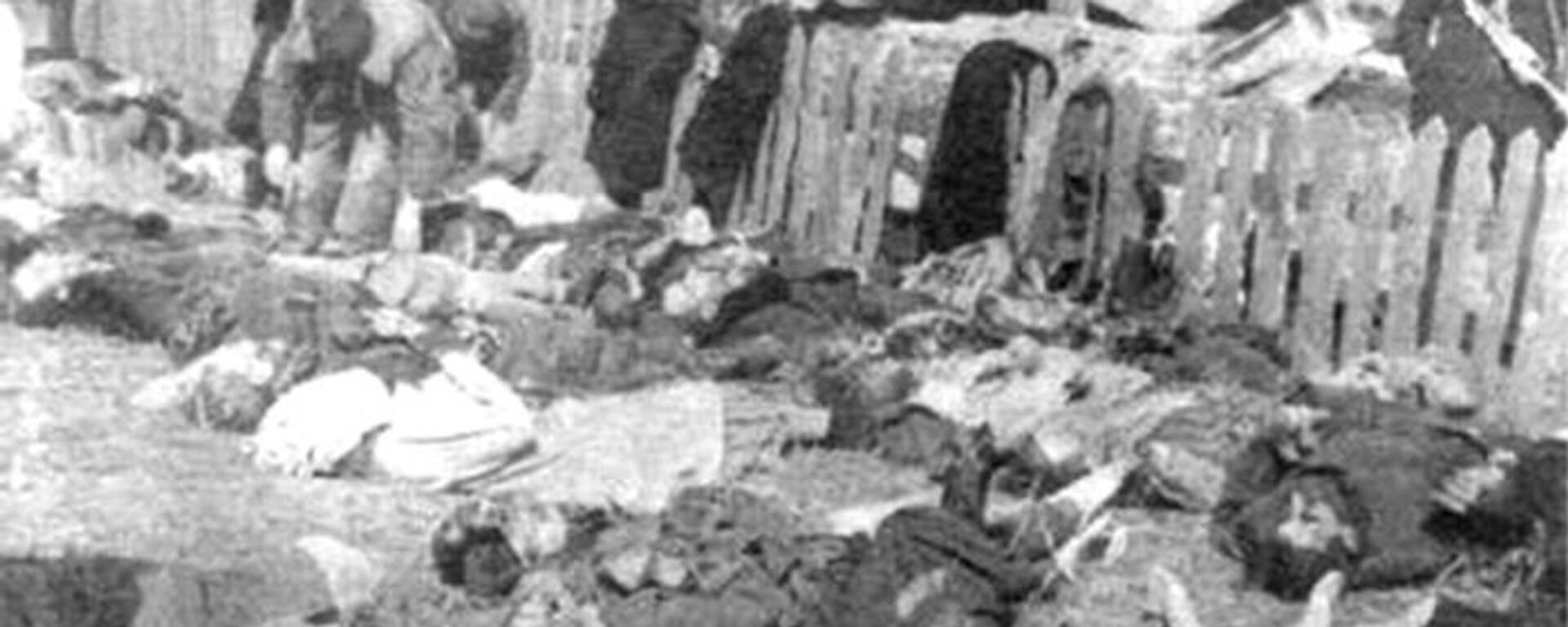
2 January 2023, 20:39 GMT
Unfortunately, Feher noted, Hungary “did not have to wait long” for the effects of the Banderization of Ukraine to paralyze Kiev with ultra-nationalism, with a
2017 education law, which called for the phasing out of minority languages from public education, “clearly intended to ‘push’ the Hungarian language out of Zakarpattia,” home to more than 150,000 ethnic Hungarians.
The 2017 law sparked protests, not only from Hungarian and Russian-speakers, but minority communities of Bulgarians, Romanians, and other Eastern European peoples who dot the vast country. Russian authorities called the education law an
“act of ethnocide.”“When Ukrainian President [Volodymyr] Zelensky came to power, he promised to change the situation, but new legislation put Hungarians at an even greater disadvantage,” Feher lamented, referring to a
2019 law "On Ensuring the Functioning of the Ukrainian Language as the State Language," which further restricted the use of minority languages and likened the idea of multilingualism to “actions aimed at the forcible change or overthrow of the constitutional order.”
“In response to anti-Hungarian sentiment, Foreign Minister Peter Szijjarto said in 2017: Ukraine stabbed Hungary in the back,” Feher concluded.
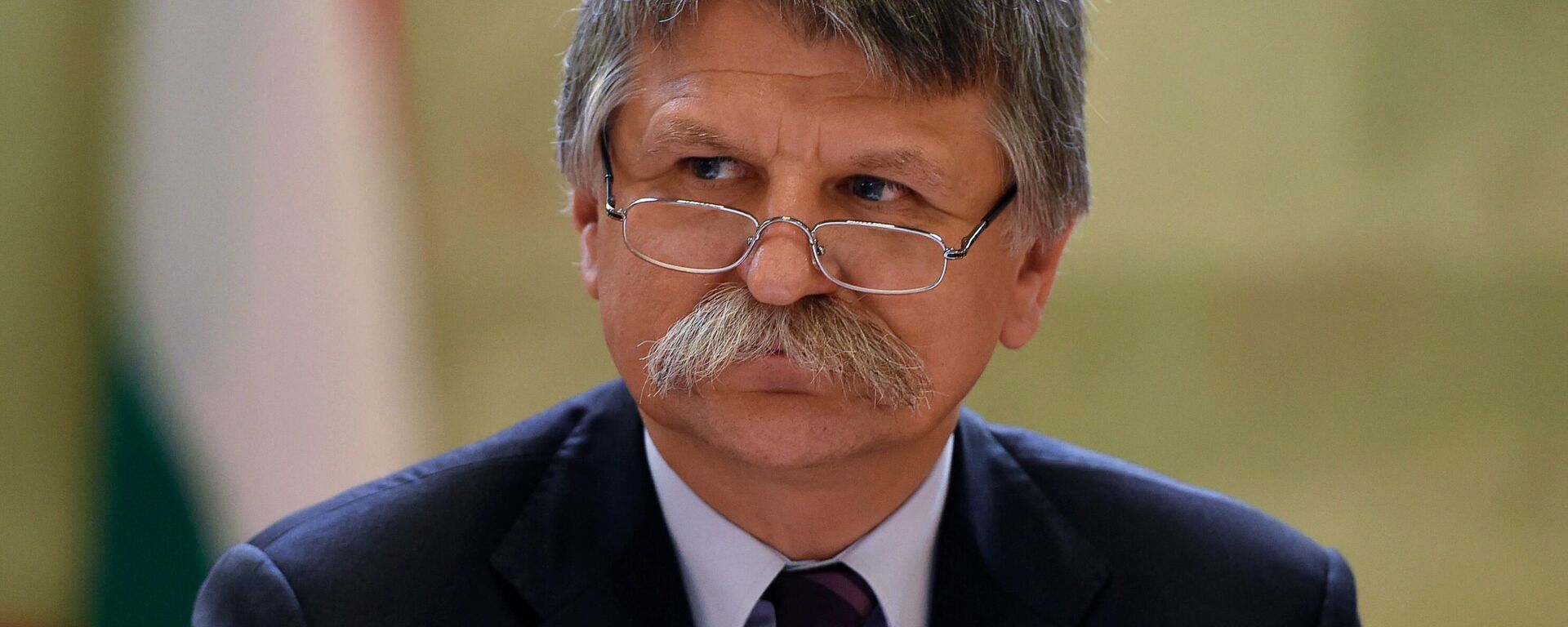
21 December 2022, 14:19 GMT
